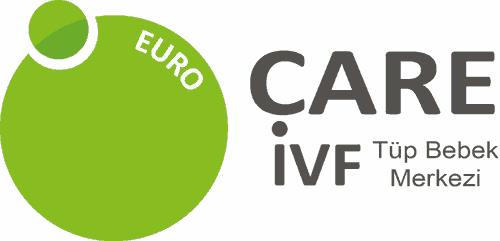
With the ultimate goal being a healthy pregnancy, gender selection IVF is becoming an increasingly popular practice among parents-to-be. While it is possible to choose the gender of your baby with in vitro fertilization (IVF), many wonder if the technique is 100% accurate.
In this guide, we gathered the latest scientific information about sex selection and the success rates of this treatment to help you make the best decision for you and your family.
Gender selection explained
At its basic level, gender selection is about choosing the perfect embryo(s) for transfer based on their quality and gender. Although exceptionally complex, sex selection is quite common: At the EuroCARE IVF clinic in North Cyprus the procedure is performed in about a third of IVF cases.
Gender selection is done as part of IVF — women first undergo ovarian stimulation followed by egg retrieval and fertilization with the father’s (or donor) sperm. The embryos grow in a special culture medium for 3 days. A single cell is then removed and sent for lab analysis. Embryos of the chosen sex are transferred to the mother’s uterus 5 days after the egg retrieval.
The reasons why more people choose gender selection IVF
The reasons behind the need for a particular gender vary. Some parents select the sex of a baby due to medical reasons. By being able to screen the embryo(s) prior to conception, parents can prevent hundreds of genetic and chromosomal conditions from being passed on to the child.
Let’s take haemophilia (a genetic disorder which impairs the blood’s ability to clot properly) for example. In families where the mother is a carrier of the haemophilia gene, a male baby will have a 50% chance of inheriting the illness. In contrast, baby girls are less likely to be affected by the condition.
When it comes to gender selection for family balancing reasons (also called non-medical or elective gender selection), parents usually want to achieve an equal number of male and female children — or have a baby of the gender that is not represented in the family. That being said, non-medical gender selection is a question of balance where a couple with two boys would like a girl (or vice versa) — not a pattern of discrimination against a particular gender.
A boy or a girl: how is the gender of your baby determined?
There are multiple methods that can help to determine the gender of your baby. Here at the EuroCARE IVF Center in Cyprus, we use preimplantation genetic diagnosis and preimplantation genetic screening along with in vitro fertilization (IVF).
Despite many concerns, the cell removal does not affect the embryo development and the baby because the cells are removed from the outer layer (also known as the trophectoderm) which later will become the placenta.
PGS
Preimplantation genetic screening (PGS) is the most commonly used technique to check if the embryo(s) has the correct number of chromosomes (also called aCGH) — or if there’s any problem with their chromosomes prior to conception. Common chromosomal disorders found through PGS include:
- Down syndrome
- Edward syndrome
- Patau syndrome
- Klinefelter syndrome
- Turner syndrome
- Triple X syndrome
While screening for all chromosomes, the EuroCARE IVF team can also determine the gender of the embryo based on the pair of sex chromosomes (XX and XY).
PGD
Preimplantation genetic diagnosis (PGD) is a technique that screens the embryo for genetic disorders which are usually linked to the sex of the baby. Parents who are carriers of genetic conditions use this procedure to reduce the risk of having a child with the same condition. Some genetic disorders tested with PGD are:
- Cystic fibrosis
- Sickle cell disease
- Tay Sachs disease
- Niemann Pick disease
- Spinal muscular atrophy
- Roberts syndrome
How effective are these procedures?
With an accuracy rate of over 99%, PGS and PGD are the most precise method for gender selection available today. This is especially important for aspiring parents who use gender selection to prevent the birth of a baby affected or at risk of sex-linked genetic disorders.
When it comes to the success rates of IVF gender selection treatments, however, age, among the many other factors, still plays an important role in the likeliness of getting pregnant through IVF. At EuroCARE IVF, in 2019, we reported the following success rates:
20-29 — 77%
30-34 — 65%
35-39 — 48%
40-44 — 25%
Are there any risks you should be aware of?
Just like with any technology, PGS and PGD have certain limitations. Mosaicism (two chromosomally distinct cells within a single embryo) may lead to wrong assumptions that an embryo is abnormal or normal when they are not. This phenomenon, however, happens rarely in medical practice.
In addition, PGS/PGD testing specifically looks for certain chromosomal/genetic patterns which may not represent the hundreds of other existing abnormalities. This is why your fertility specialist will recommend prenatal testing, such as amniocentesis, to confirm the absence of birth defects in pregnancies following PGS/PGD testing.
Your baby’s health above all — make the right decision with EuroCARE IVF!
Advanced technologies like preimplantation genetic screening and preimplantation genetic diagnosis have provided aspiring parents with the exciting opportunity to select the gender of their future baby(s) during IVF.
With over 99% accuracy, the EuroCARE IVF Center in North Cyprus continues to amaze its patients. Thanks to the flexible local regulations, the clinic is able to provide gender selection services to all parents with concern about specific genetic/chromosomal disorders, as well as patients who wish a child of a particular gender due to family balancing reasons.
If you’re hoping for a boy or are really dreaming of a girl, take your first step now and schedule an online consultation with our expert medical team — for free! Complete your family with a healthy baby of the desired gender — all while relaxing on the beautiful island of Cyprus.
